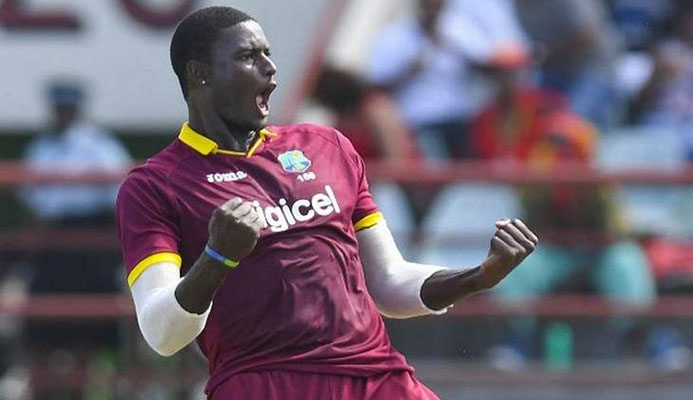A recent article in a Caribbean newspaper hinted that West Indies captain Jason Holder is too nice a guy to get the best out of his players. It suggested that he should get tougher with them and adopt the sergeant major approach that Allan Border, a former Australian captain, used with his players.
This thinking is quite appealing but is very shallow. Border was a champion batsman but he was not a great captain; he was no Mark Taylor or Steve Waugh. So why recommend that approach to Holder when two Australians who coached the West Indies team already used it with little or no success?
Why indeed should Holder copy Border? What is wrong with the leadership of Frank Worrell and Clive Lloyd? These captains were firm when they had to be but were not sergeant majors. They were in fact very nice guys who preferred the carrot to the stick. Their achievements are exceptional. They brought together a diverse collection of talented individuals who lacked direction, common purpose, self-discipline and self-belief and turned them into a highly disciplined, motivated, professional and all-conquering unit that dominated world cricket for two decades.
In their own way, Worrell and Lloyd achieved two great victories. First, they got rid of the debilitating self-image and the limiting self-beliefs that had been stifling the talent of their players and second, they removed the cancerous effects that insularity, bad habits, poor excuses and outmoded traditions had on teamwork.
Some might say that Holder’s players lack the talent of the players from the Lloyd/Worrell era. That may be partially true. However, when Worrell’s young team went to Australia in 1960 few had any kind of reputation before they arrived, but when they left they were all stars or superstars, each with an enhanced self-image, powerful self-belief and a strong will to win.
From the beginning Worrell reminded them about their latent talent and emphasised that they would beat Australia if they played with discipline and commitment.
Performance revolves around many things, none more important than self-image, self-belief and self-confidence. The player’s self-image is the subconscious picture he has of himself and it causes him to think and perform like the player he imagines himself to be. To enhance his performance, improve his self-image and self-belief.
West Indies cricket has been in steady decline for the last 20 years or so and with the advent of every new president and CEO that decline gets steeper. In recent years the players have been performing in a hostile and toxic environment that has been perpetrated by the West Indies Cricket Board (WICB). If Worrell and Lloyd had to operate in that environment, their achievements would have been critically limited.
Goldfish in a fish tank will grow larger or stay smaller according to the size of the fish tank. If the tank is large the goldfish will get bigger but if the tank is small they will stay small.
So too, players will grow larger and succeed or stay smaller and fail according to the size and quality of environment that is created for them. Expansion and improvement of their environment will enhance their ability to learn, grow and become better players.
But before this can happen to the West Indies players, the WICB and its members must start with themselves and set the right example. They must detoxify and expand the current cricket and management environment and commit themselves to self-improvement and better self-leadership.
Frank Worrell once said, “Lancashire League cricket is a must for any youngster who hopes to make the grade. One of the greatest assets one gets from league cricket is a tremendous sense of responsibility and awareness. One can learn more in three years of League cricket than in 12 years of cricket outside the United Kingdom, even at the international level. One learns to cope with the swerving ball, the turning ball, the cutter, the stopping ball, the cold, dark and blustery weather, running noses, cold hands and feet, faulty umpiring decisions, dropped catches and traditional needle matches.”
Between the sixties and nineties most of our good cricketers improved the technical, mental and strategic aspects of their game by playing league or county cricket. Shouldn’t the WICB be encouraging talented young players to follow that development path?
Why do some sports journalists and the WICB behave as if West Indies never had a cricket history of any significance. Have they lost their cricket memory? And why can’t we copy and rejoice in the achievements of our great players?
The WICB, coaches and players can learn a lot from the experience and wisdom of Sir Garfield Sobers. They should study his formula for cricket success and use it as their performance model. Sobers once said, “If I had a free hand in coaching I would initially spend most of my time teaching the basics of the game. Thereafter, I would devote an equal amount of time teaching the players how to identify and deal with the many different situations they will face during the game. Good players know how to think, how to concentrate and what to do in different situations. I believe this combination gives the player the best preparation and the best chance to do well.”
Worrell would have added a third component – the improvement of self-belief, self-motivation and self-discipline because he knew that the depth of a player’s motivation and self-discipline determines the level of his performance. Some experts now claim that the correlation between self-discipline/self-motivation and success is greater than the correlation between ability and success.
The revival of West Indies cricket is a complex challenge. Changing Holder into a sergeant major will be just as effective to his team’s game as putting plaster on a skin cancer that has been slowly killing the body. The plaster would not change the course of the disease.
—Dr Rudi Webster is a former West Indies team manager and performance enhancer
- By Rudi Webster

